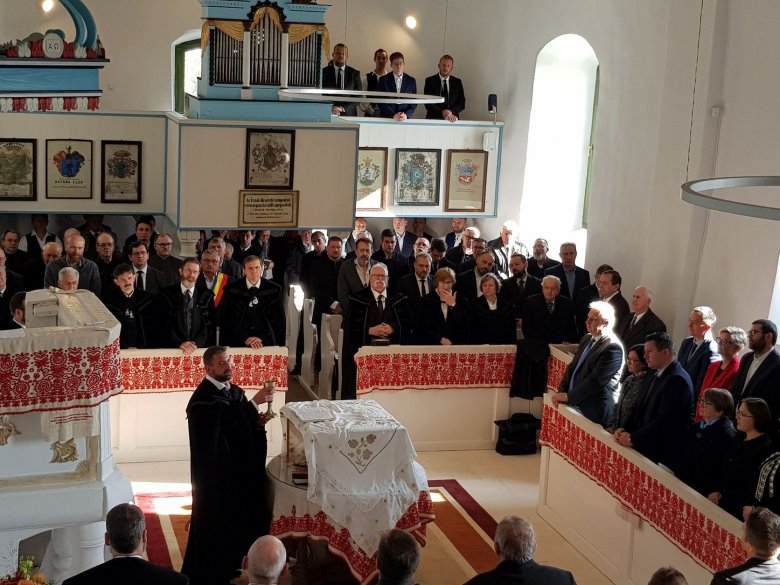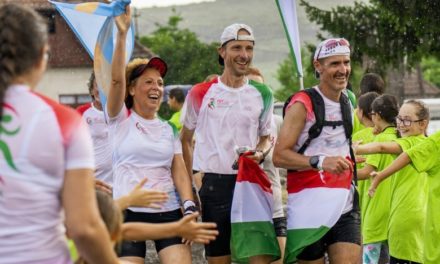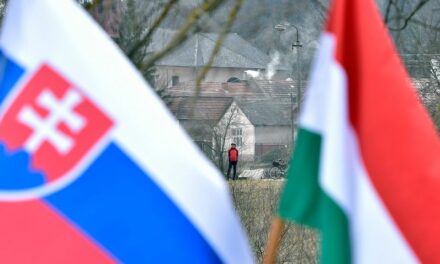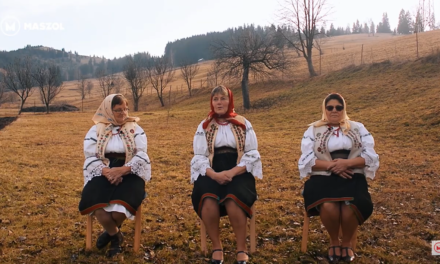A house built of stone, wood and clay means that we will stay here - said Transylvanian Reformed bishop Béla Kató in Ajton on Sunday. According to Zsolt Semjén, the national loyalty and will to live of the Transylvanian Reformed people serves as an example for Hungarians in general. Today is Reformation Day.
Ajton can be a role model for the entire Carpathian basin, a symbol of Hungarian survival, not the end of something, but a beginning, not a final castle, but a camp where Hungarians gather to strengthen each other, Zsolt Semjén said in Ajton on Sunday. The Deputy Prime Minister spoke about this at the ceremony that was held on the occasion of the inauguration of the reformed church in Ajton, which was renovated with Hungarian state support, and the family support center, consisting of twenty-one houses, built in order to repopulate the dwindling congregation, in the settlement located in the catchment area of Cluj.
According to the Christian Democrat politician, the church in Ajton and the Transylvanian Reformed Church are showing their faith by renovating the church, and by building the family support center
he testified to his loyalty to the nation from which he inherited his language, thinking, and culture.
Transylvanian Reformed bishop Béla Kató emphasized at the thanksgiving service that the church must organize into communities and show a future to orphaned and lonely people. Citing the book of Jeremiah, he encouraged the Reformed families moving to Ajton to build, settle, grow and have children.
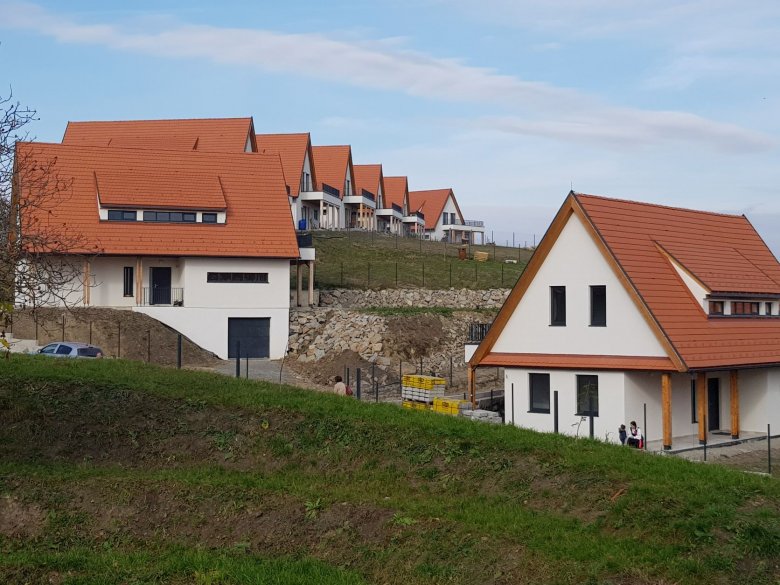
The 21 two-story family houses are lined up on a five-hectare area on the edge of the settlement/Source: Rostás Szabolcs/kronika.ro
A house built of stone, wood, and clay means that we stay here. We are here at home. We have to be here, we have to settle here permanently or at least for the long term, said the bishop.
At the inauguration ceremony of the family support center, Béla Kató pointed out that the idea of community rehabilitation comes from István Vitus-Bulbuk, a Reformed pastor in Ajton, and Zoltán Ballai, the former economic consultant of the church district.
István Vitus-Bulbuk told MTI that seventy-eight Reformed believers lived in the village of almost five hundred inhabitants located fifteen kilometers from Cluj. The number of the aging and dwindling community has now doubled. The original idea was that the church would parcel out its five-hectare area on the edge of the village into plots of 1,000 square meters, and offer the properties for house building to young Reformed families in the hope of settling and populating the congregation. The Transylvanian Reformed Church District, however, further developed the initiative and - after obtaining the support of the Hungarian government - built a communally landscaped residential area of twenty-one houses in Ajton.
Applicants were selected through tenders for the houses with a useful surface of one hundred and fifty square meters each, bearing the style features of Mezőség and Kalotaszeg. Homes were rented out by young people from various regions of Transylvania, who came to Cluj mostly as university students, who already had a job there, who now have families, who already have children, or who are thinking about having children, a large family, and at least one party is a Reformed person experienced in church life.
Source: Magyar Hírlap
Featured image: kronika.ro

